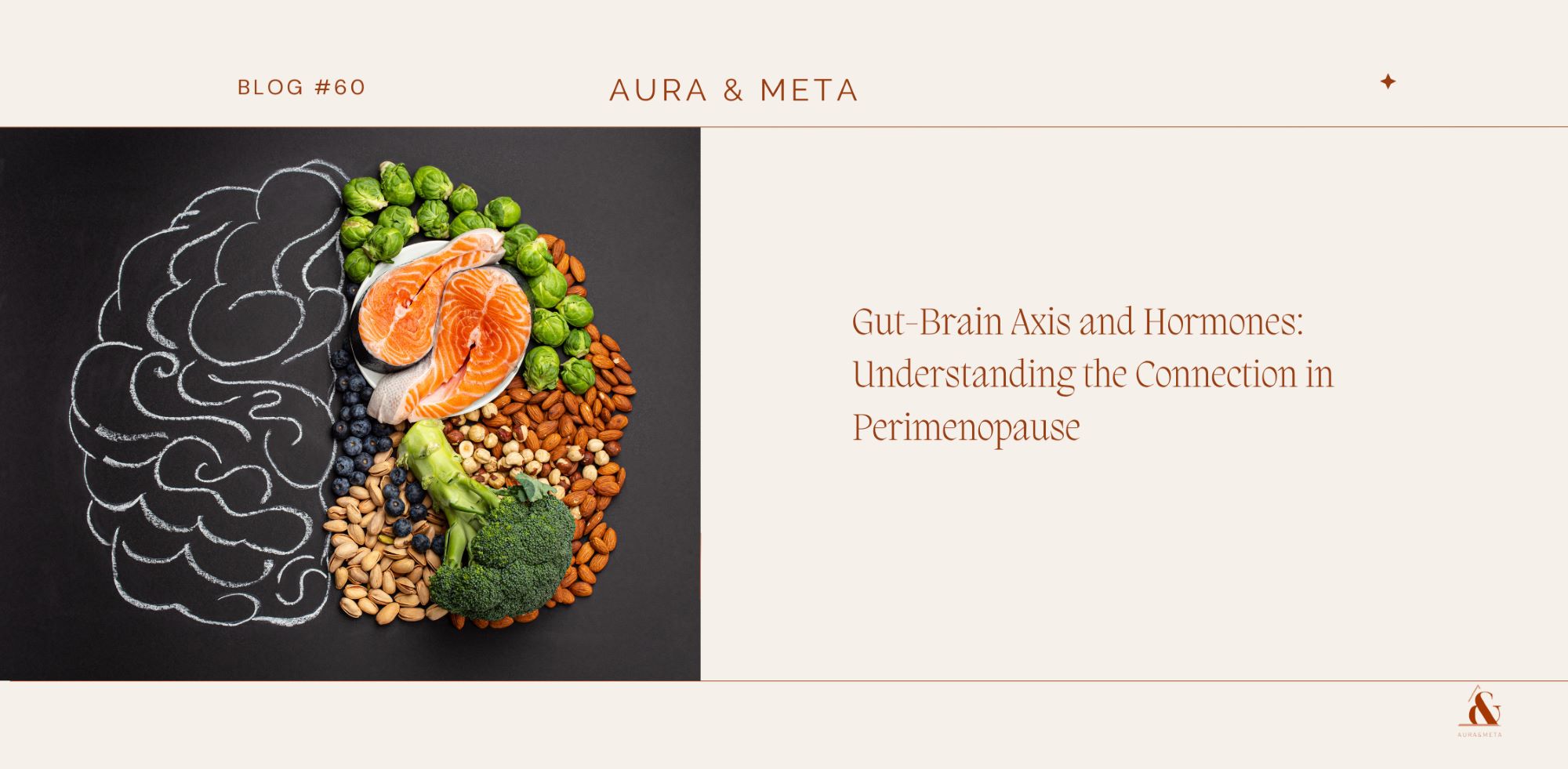As women approach perimenopause, they often experience a host of physical and emotional changes that go beyond what traditional explanations of hormonal fluctuations might cover. A crucial, yet often overlooked component is the gut-brain axis — the biochemical signaling pathway between the gastrointestinal tract and the brain. In perimenopause, this connection becomes particularly important, as hormonal shifts impact both digestive health and mental well-being. Understanding and supporting this connection is vital for navigating perimenopause with greater balance, energy, and resilience.
What is the Gut-Brain Axis?
The gut-brain axis is a bidirectional communication system between the gut and the brain, involving nerves, hormones, and immune system messengers. The gut, often called the “second brain,” contains an intricate network of neurons and a vast microbiome that produces neurotransmitters like serotonin and dopamine — both of which are crucial for mood regulation. During perimenopause, changes in estrogen and progesterone levels influence the gut microbiome, which in turn affects mental and emotional health.
At Aura & Meta, we recognize the importance of this connection in women’s health, particularly during life transitions like perimenopause. Our approach includes comprehensive testing and personalized strategies to support optimal gut health and emotional well-being.
How Hormones Affect the Gut and Brain in Perimenopause
Estrogen and Gut Health
Estrogen plays a critical role in maintaining the gut barrier, ensuring that the digestive system functions smoothly. When estrogen levels fluctuate during perimenopause, it can disrupt gut health, leading to issues such as bloating, constipation, and food sensitivities. These gastrointestinal disturbances can exacerbate feelings of anxiety, stress, and fatigue.
Additionally, a decrease in estrogen affects the diversity of the gut microbiome, which can lead to imbalances in beneficial and harmful bacteria. Supporting gut health through balanced nutrition and probiotics, as we offer in our Nutritional Therapy services, can help mitigate these effects and promote a healthy microbiome during this transitional phase.
The Impact of Cortisol
Perimenopause is a period when women often experience heightened stress levels. Cortisol, the primary stress hormone, plays a role in the gut-brain axis by affecting the gut lining and potentially leading to “leaky gut” — a condition where toxins can enter the bloodstream and trigger inflammation. This inflammation may contribute to brain fog, mood swings, and even depressive symptoms, making the gut-brain connection even more essential to monitor. Tools like the DUTCH Test available at Aura & Meta can assess cortisol rhythms and provide insights into stress management.
Hormonal Changes, Blood Sugar, and Mood Regulation
Blood sugar stability becomes especially important during perimenopause as hormonal changes can impact insulin sensitivity, causing blood sugar fluctuations. These fluctuations can affect mood, leading to irritability, fatigue, and cravings. The gut microbiome also plays a role here, as certain gut bacteria influence the body’s ability to regulate glucose. By addressing these root issues, we help clients at Aura & Meta balance blood sugar levels, which in turn supports emotional stability and overall well-being.
Signs of Gut-Brain Imbalance During Perimenopause
A disruption in the gut-brain axis during perimenopause can result in a range of physical and emotional symptoms, such as:
- Digestive Issues: Increased bloating, constipation, or diarrhea.
- Mood Changes: Heightened anxiety, irritability, or depressive symptoms.
- Cognitive Effects: Brain fog, difficulty concentrating, or memory lapses.
- Fatigue: Persistent tiredness that doesn’t improve with rest.
If you’re noticing these symptoms, it may indicate an imbalance in the gut-brain axis. At Aura & Meta, we use comprehensive testing and holistic treatments to address these imbalances at the source.
Supporting the Gut-Brain Axis: Practical Strategies
1. Diet and Nutritional Support
A balanced diet rich in fibre, antioxidants, and omega-3 fatty acids can support gut health and brain function. Probiotics and prebiotic-rich foods, such as yogurt, sauerkraut, and garlic, feed beneficial bacteria and promote a diverse microbiome. Our nutritional therapy services provide personalized guidance for dietary support during perimenopause.
2. Mindfulness and Stress Reduction Since stress directly impacts the gut-brain axis, incorporating stress management techniques like mindfulness, yoga, or meditation can be beneficial. By focusing on the mind-body connection, these practices help reduce cortisol levels and promote a sense of calm, supporting both digestive health and mental clarity.
3. Kinesiology for Emotional and Physical Balance Neuroenergetic kinesiology, offered at Aura & Meta, is a powerful tool for identifying and addressing blockages in energy flow within the body. This technique can help alleviate the stress around emotional tension stored in the body, enabling a smoother flow of energy and supporting the gut-brain connection. Our clients have found kinesiology to be an essential tool for navigating perimenopause with greater balance.
4. Functional Testing Functional testing offers personalized insights into hormone levels, gut health, and the gut-brain axis. Tests such as the DUTCH Test and Genetic Testing help identify unique patterns in hormone fluctuations and microbiome health, guiding us in creating customized support plans for optimal well-being.
Why the Gut-Brain Axis Matters in Perimenopause
During perimenopause, the connection between the gut and brain is more than just a physiological concept. It is a critical aspect of health that influences everything from emotional well-being to cognitive function. By taking proactive steps to support the gut-brain axis, women can alleviate the discomforts of perimenopause and embrace this stage of life with resilience and clarity.
Through our integrative approach at Aura & Meta, we offer support that goes beyond addressing symptoms, helping women find balance, stability, and vitality.

